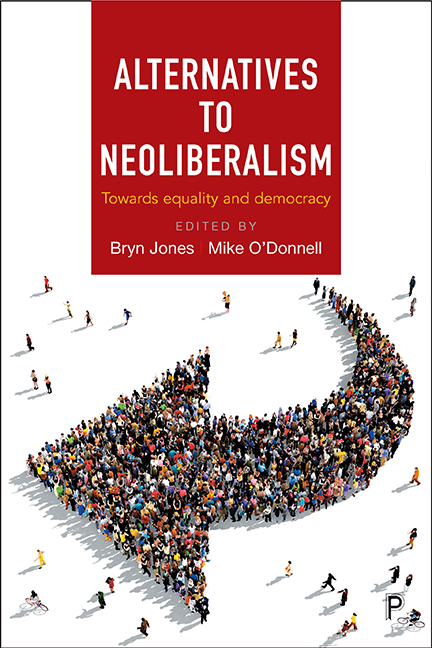Book contents
- Frontmatter
- Dedication
- Contents
- List of figures, tables and boxes
- List of abbreviations
- Notes on contributors
- Acknowledgements
- Foreword
- Editors’ preface
- Introduction: The open-market society and its opponents: an overview
- Part One Alternative paradigms and perspectives
- Part Two Reform within economic and governance restraints: pushing the boundaries
- Part Three Economic and political democracy: restoring the market-civil society balance
- Conclusion: A Brexit from neoliberalism?
- Index
Part One - Alternative paradigms and perspectives
Published online by Cambridge University Press: 05 April 2022
- Frontmatter
- Dedication
- Contents
- List of figures, tables and boxes
- List of abbreviations
- Notes on contributors
- Acknowledgements
- Foreword
- Editors’ preface
- Introduction: The open-market society and its opponents: an overview
- Part One Alternative paradigms and perspectives
- Part Two Reform within economic and governance restraints: pushing the boundaries
- Part Three Economic and political democracy: restoring the market-civil society balance
- Conclusion: A Brexit from neoliberalism?
- Index
Summary
Building on the Introduction's historical and critical review of neoliberalism and of existing proposals to change it, Part One specifies alternative, more radical perspectives to this still dominant, if elusive ideology. Following our proposal in the Preface, of a spectrum of ‘regime’ and ‘system’ changes, contributors’ political and policy perspectives in this part of the book assume democratic and non-violent, rather than ‘revolutionary’ change – some modest but strategic, others with broader, societal scope.
Jeremy Gilbert contextualises his recommendations for a renewal of socialist challenges to neoliberalism by distinguishing between critiques and counternarratives as moralistic, pathologising (‘neoliberalism makes you ill’), eco-Marxist and Marxist, and his preferred approach of radical democracy. Gilbert describes ‘moralistic’ approaches as limited to moral stances and exhortations to act differently and ‘better’, rather than providing specific strategies and programmes of change. Thus the moralism of the left can be as conservative as that of the right and is unlikely to appeal to those voters preoccupied with material hardship. Though impressed by the evidence that neoliberalism can damage people – make them ill – physically and psychologically, Gilbert argues that these perspectives lack a crucial identification of power and material interests in the present system. In an analysis that complements that of Benton in Chapter Three, he finds a lack of convincing solutions in the otherwise devastating demonstrations by Marxists, and particularly eco-Marxists, of the enormous material damage neoliberalism causes. Again Gilbert offers a radical democratic path allied to a modernisation ethos. This would utilise the radical potential inherent in media technologies and new organisational techniques: sophisticated tools to bring the individuals isolated by corporate neoliberalism into ‘potent collectives’. The organisational forms to promote these changes would be self-governing alternatives to the corporate model, developed through democratic decision making, rather than top-down, state imposition.
Anna Coote's recommendations cover three overlapping areas: social justice; environmental sustainability and a more equal distribution of power. A key unifying theme is that the distribution and control of resources should be directed towards the needs and potential of all members of society and not, as is currently the case, disproportionately to the few. Accordingly people should ‘be able to influence and control decisions that affect their everyday lives’.
- Type
- Chapter
- Information
- Alternatives to NeoliberalismTowards Equality and Democracy, pp. 25 - 26Publisher: Bristol University PressPrint publication year: 2017



